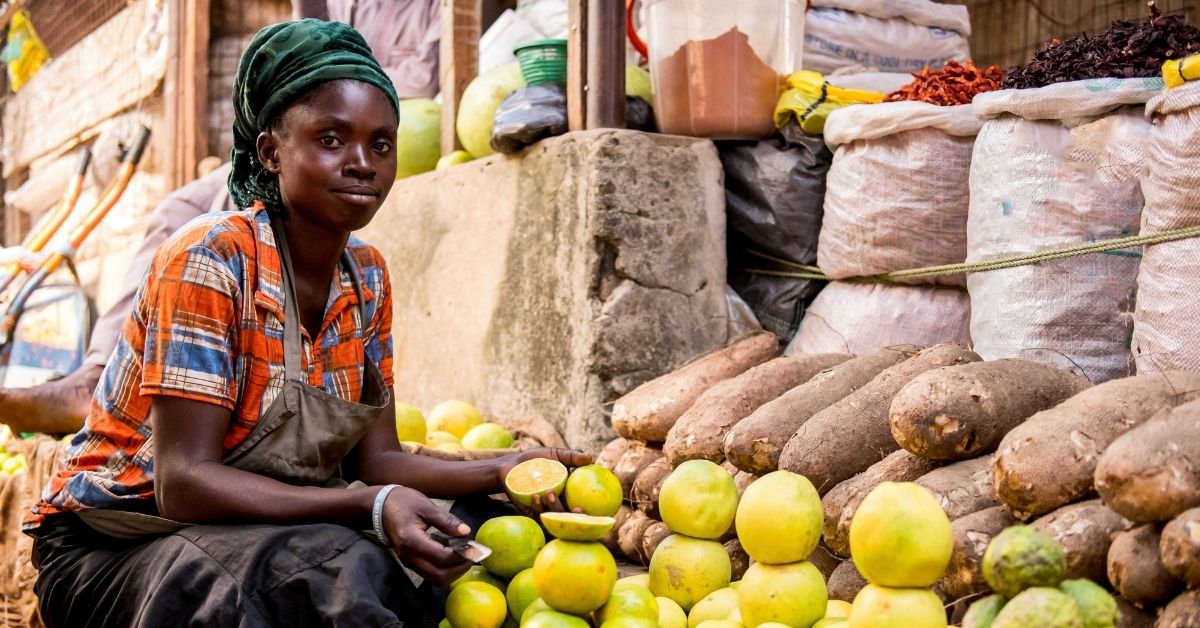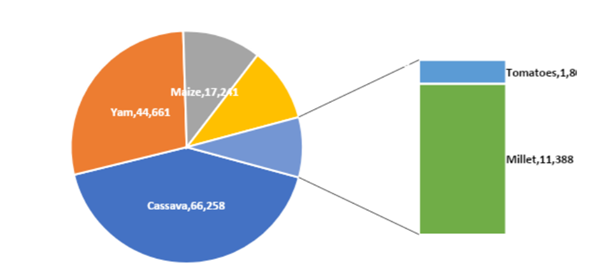Food Safety status in Nigeria
Locally and internally, many outbreaks in Nigeria are still a relevant issue in de Nigerian food sector, Food safety systems are crucial in maintaining the safety of the food products (Iro et al., 2020).
Nigeria is known for its large production of cassava. According to (Flanders Investments & Trade, 2020) Nigeria produces around 66 258 tonnes of cassava and 44 661 of yam. Other important products produced by agriculture are maize, tomatoes, and millet. Nonetheless, most of the commodities that are exported are cacao, nuts, and fruits rich in oil. Nigeria still has a lot of potential in the food industry to win.

State of today Nigeria
However, the current COVID-19 has been very pressuring the Nigerian food sector in the case of food security and food safety (PWC, 2020). Furthermore, the pandemic has resulted in significant inflation. Food inflation has risen by 15%. In these pressuring times, management, especially food safety management is essential to combat the food scarcity in Nigeria. Nigeria is facing difficult times in Food security (Matemilola, 2017), the COVID situation has been an extra hurdle in the road.

Figure 1. Top 5 Agricultural products – Production in 1000 tonnes (Flanders Investments & Trade, 2020)
Next, they are the world’s largest producer of cassava, the country is also known as one of the leading rice consumers in the world (FAO, n.d.). Next to the agricultural sector the company has a potential food processing sector. The food processing industry in Nigeria has doubled in the last decade (USDA, 2013), with a total sales in 2020 of 20 billion dollars. Large multinationals are located in Nigeria, Olam, Pz Cussons, Nestlé and OK foods. Next to multinationals the country has an increase in local food processors (USDA, 2013). As mentioned before the Nigerian market is full of potential. At the moment large companies are located in Nigeria, however, a lot can be done to improve food safety. Nigeria has to import a lot of meat to meet the demand of the country. Imported meat is chosen by many Nigerians because of the quality of processed meat (Flanders Investments & Trade, 2020).
Lastly, hunger is today a relevant issue. Multiple partnerships rose from the ground, to combat food security. The largest partnership known is the Lagos Food Bank Initiative. Large multinationals like Unilever, Nestlé, Kellogg’s and more (LagosFoodBank, 2021).
Food Export program
QAssurance has started with different stakeholders, their own Food Export program. This partnership focuses on combatting food security by improving food safety. Sufficient food safety practices are needed to reduce waste and to maintain the safety of the Nigerian consumer. Furthermore, food safety certification improves the position of the market of African companies, as well as improving their position in the international market. The partnership focuses on sharing knowledge and skills instead.
Sources
FAO. (n.d.). Nigeria at glance. Food and Agriculture Organization of the United Nations.
Matemilola, S. (2017). The challenges of food security in Nigeria. Open Access Library Journal, 4(12), 1.
USDA. (2013). Nigeria: Food Processing Ingredients. USDA Foreign Agricultural Service.
Flanders Investments & Trade. (2020). Food and beverage industry in Nigeria.
Iro, O. K., Enebeli, U. U., Iloh, G. U., Azuama, Y., Amadi, A. N., Amadi, C. O., … & Ogamba, S. E. Food Hygiene and Safety Management in Nigeria.
PWC. (2020). Responding to the impact of COVID-19 on Food Security and agriculture in Nigeria.
Lagos Food Bank. (2021, 15 februari). Our Partners. Lagos Food Bank, Nigeria, Africa.
Related articles to Nigeria: Status Food Safety issues and challenges
Many customers and visitors to this page 'Nigeria: Status Food Safety issues and challenges' also viewed the articles and manuals listed below:
